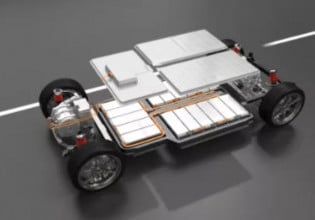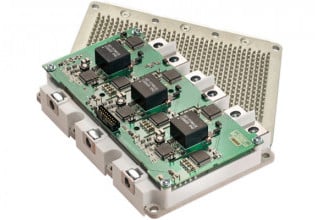Low-Power Analog Neural Networks for Voice, Sensor and Video Applications
Syntiant Corp., an artificial intelligence semiconductor company that is accelerating the transition of machine learning from the cloud to edge devices, has unveiled its ultra-low-power analog neural network technology. The Irvine, California-based company recently closed its Series A round led by Intel Capital.
Specifically designed for voice, sensor and video applications from mobile phones and wearable devices to smart sensors and drones, Syntiant's Neural Decision Processors (NDPs) utilize custom analog neural networks to optimize deep learning functions at the transistor level.
Syntiant's technology eliminates data movement penalties, enabling smart devices to perform neural computation locally, faster, and more efficiently than traditional CPU, GPU and DSP options. Syntiant NDPs are focused on always-on applications for battery-powered devices, such as keyword spotting, speaker identification, wake word, event detection, image recognition and sensor synthesis.
"Analog neural networks and deep learning are a match made in heaven, delivering more than 50 times improvement in efficiency versus traditional digital stored-program architectures," said Kurt Busch, chief executive officer of Syntiant.
"Our technology combines the latest in deep learning research with Syntiant's leadership team's more than 10 decades of semiconductor experience to deliver transformative functionality for battery powered devices - from ear buds to cell phones - at microwatt power levels.
"Ultimately, this will enable OEMs to bring machine learning and artificial intelligence functionality to smart devices free from cloud connection, size, and power consumption constraints," Busch concluded.
"Machine learning and AI in the cloud typically demands a great deal of power," said Wendell Brooks, senior vice president of Intel Corp. and president of Intel Capital. "For machine learning to be deployed in edge devices, it has to become much more power efficient. We believe ultra-low-power, analog neural networks like the ones Syntiant provides could dramatically boost the adoption of distributed AI."
Syntiant also announced a development agreement with Infineon Technologies to complement its NDPs with the company's high-performance microphone technology.
"Infineon is dedicated to enabling our customers with the latest and most exciting technologies. We are thrilled to partner with Syntiant to further enhance the capabilities of our best-in-class high-performance silicon microphones," said Adrian Mikolajczak, Head, Silicon Valley Innovation Center, Infineon Technologies. "Through our collaboration with Syntiant, we are rapidly evolving edge capabilities and can achieve breakthrough AI and sensor fusion - continuing to deliver industry leading solutions to our customers."
"Our partnership with Infineon combines their best-in-class sensors and microphones with our NDPs, to provide customers with breakthrough technology, performance and intuitive interfaces," Busch added.
Venture Capital firms Seraph Group, Danhua Capital and Embark Ventures also participated in Syntiant's Series A round. Funds raised will be used for the further development and commercialization of Syntiant's analog neural network technology enabling OEMs to bring machine learning and AI to edge devices.
"Syntiant's technology greatly enhances the efficiencies of the myriad applications we use in our everyday lives, and we are excited to see this experienced team's vision come to fruition," said Tuff Yen, CEO of Seraph Group. "There is tremendous opportunity for Syntiant's technology, and Kurt and his team are well poised for success as demand for their technology grows in parallel with bringing AI and machine learning from the cloud to edge devices."
"We are very excited to participate in Syntiant's Series A and support Kurt and his veteran team on this endeavor," said Dovey Wan, managing director at Danhua Capital. "Syntiant's unique approach to Neural Decision Processors will enable a variety of applications in the areas of edge computation and embedded AI. We foresee a large demand and market potential of Syntiant's NDPs in the Asian markets, where major consumer electronics brands are seeking this type of solution."






